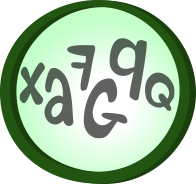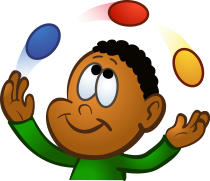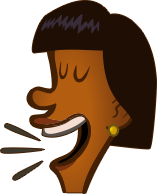Dyslexia can only be diagnosed through a formal assessment, carried out by a suitably qualified professional.
To understand which assessment might be right for you click the tabs below to explore the different types.
Educational/Occupational Psychologist

This is a good option to formally identify dyslexia. It is a comprehensive and in depth assessment of learning abilities and will provide a cognitive profile (how the brain works) of the individual’s learning style.
What is involved?
- First we send you a questionnaire, which gives important background information to the Psychologist
- We also send a questionnaire for you to take to school if the assessment is for a child
- A brief initial chat with the Psychologist
- 2-2 ½ hours of varied activities that look at different skills linked to learning and basic skills
- A brief discussion about the results
- A full written confidential report with recommendations is sent after approximately 3 weeks
The results give a profile of learning strengths and weaknesses. A diagnosis of dyslexia is often based upon the Psychologist’s experience and low scores in those areas generally affected by dyslexia.
All Psychologists are independent, HCPC registered, fully qualified and experienced professionals.
Specialist Practitioner Assessment
 Available for children 7-15 yrs
Available for children 7-15 yrs – These assessments are also very comprehensive, but are not quite as as in depth as a psychologist’s assessment in areas of cognitive ability. They can however diagnose dyslexia and make recommendations for support through a full written report.
Specialist practitioners carrying out assessments are fully qualified, registered and experienced professionals.
What is involved?
- First we send you a questionnaire, which gives important background information to the assessor
- A brief initial chat with the assessor
- 2 hours or so of activities that look at skills linked to learning and areas of literacy
- A brief discussion about the results at the end
- A written confidential report with recommendations is sent after approximately 3 weeks
Consultations

A 40 minute consultation can also be considered. This gives parents an opportunity to discuss their child’s difficulties, or adults to discuss their issues, to ask advice and suggestions for remediation. An consultation with brief assessments and standardised reading and spelling tests can also be presented if required, with a short summary report of the findings. However, this is not a diagnosis. For a thorough and accurate diagnosis a full cognitive assessment should be carried out. (See Psychologist or Specialist Practitioner assessments above).
Occupational Therapy (OT)

An independent visiting occupational therapist will give an initial assessment. This will be written up into a programme of intervention. Follow up treatments can then be arranged.Occupational therapy addresses difficulties with balance and co-ordination.
Difficulties can range from large (gross) movements like riding a bicycle to small (fine) movements like illegible handwriting. It is often helpful for addressing co-ordination problems associated with dyspraxia / Developmental Co-ordination Disorder (DCD).
Not currently available at the centre.
Speech and Language Therapy (SALT)

An independent visiting speech and language therapist will give an initial assessment. This will be written up into a programme of intervention. Follow up treatments can then be arranged.
Not currently available at the centre. Try here to find a therapist local to you.
How to book an assessment
To book please contact us initially to find out current availability. At times, we will be operating a waiting list system. The first step is to complete some background questionnaires which we will send to you.
Once we contact you to arrange the appointment, a 50% deposit is required to confirm. The balance is due on the day of the appointment.


 This is a good option to formally identify dyslexia. It is a comprehensive and in depth assessment of learning abilities and will provide a cognitive profile (how the brain works) of the individual’s learning style.
This is a good option to formally identify dyslexia. It is a comprehensive and in depth assessment of learning abilities and will provide a cognitive profile (how the brain works) of the individual’s learning style.
 Available for children 7-15 yrs – These assessments are also very comprehensive, but are not quite as as in depth as a psychologist’s assessment in areas of cognitive ability. They can however diagnose dyslexia and make recommendations for support through a full written report.
Available for children 7-15 yrs – These assessments are also very comprehensive, but are not quite as as in depth as a psychologist’s assessment in areas of cognitive ability. They can however diagnose dyslexia and make recommendations for support through a full written report.
 A 40 minute consultation can also be considered. This gives parents an opportunity to discuss their child’s difficulties, or adults to discuss their issues, to ask advice and suggestions for remediation. An consultation with brief assessments and standardised reading and spelling tests can also be presented if required, with a short summary report of the findings. However, this is not a diagnosis. For a thorough and accurate diagnosis a full cognitive assessment should be carried out. (See Psychologist or Specialist Practitioner assessments above).
A 40 minute consultation can also be considered. This gives parents an opportunity to discuss their child’s difficulties, or adults to discuss their issues, to ask advice and suggestions for remediation. An consultation with brief assessments and standardised reading and spelling tests can also be presented if required, with a short summary report of the findings. However, this is not a diagnosis. For a thorough and accurate diagnosis a full cognitive assessment should be carried out. (See Psychologist or Specialist Practitioner assessments above).
 An independent visiting occupational therapist will give an initial assessment. This will be written up into a programme of intervention. Follow up treatments can then be arranged.Occupational therapy addresses difficulties with balance and co-ordination.
An independent visiting occupational therapist will give an initial assessment. This will be written up into a programme of intervention. Follow up treatments can then be arranged.Occupational therapy addresses difficulties with balance and co-ordination.
 An independent visiting speech and language therapist will give an initial assessment. This will be written up into a programme of intervention. Follow up treatments can then be arranged.
An independent visiting speech and language therapist will give an initial assessment. This will be written up into a programme of intervention. Follow up treatments can then be arranged.


